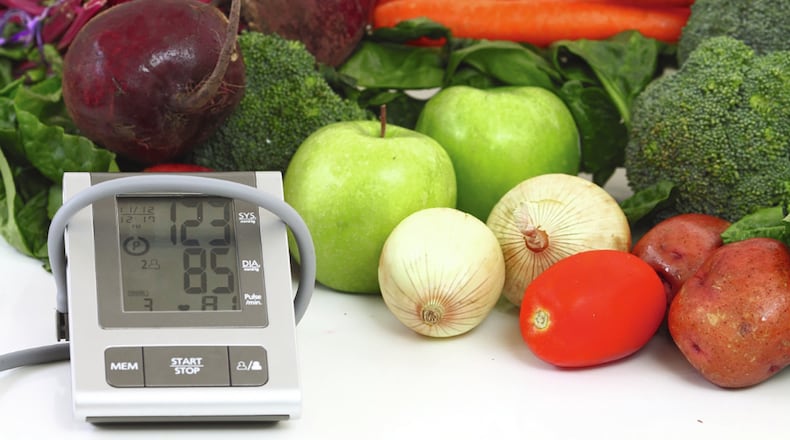Each May, Blood Pressure Education Awareness Month provides an opportunity to raise awareness of the dangers posed by high blood pressure, how to manage blood pressure and how to modify one’s lifestyle to prevent worsening hypertension.
“Having high blood pressure can be an indicator of heart disease and can put you at risk for heart attack and stroke,” said Health Promotion Coordinator Sarah Thompson with the Civilian Health Promotion Services. “But, the most important thing to focus on is that blood pressure is manageable.”
While high blood pressure is a major factor for heart attack and stroke, Thompson said there are plenty of ways in which blood pressure can be managed. For those who are in the pre-hypertensive range, she said dietary changes, such as reducing sodium, or increasing cardiovascular exercise can make significant positive changes. She added that all diet and exercise changes should be discussed with your doctor.
Sodium intake is something that can have a major effect on blood pressure and is one area Thompson said many people underestimate. The Food and Drug Administration recommends that Americans limit their sodium intake to less than 2,300 milligrams or one teaspoon of salt per day. Instead, they report that the average American consumes more than 3,400 milligrams of sodium per day.
“When we think of our sodium intake, we usually think about the salt that is added at the table. However, this only accounts for about 12%,” Thompson said. “Most of that sodium is already in our food, especially when we eat at restaurants or go to fast food places.”
When a person’s blood pressure has reached the hypertensive range, Thompson said it is important to ensure that regular communication is maintained with one’s health care provider to help get that range back to normal as quickly as possible.
When it comes to maintaining one’s health, Thompson said monitoring one’s levels is vital to addressing issues before they arise. Compared to other health factors, however, she said blood pressure can be easier to monitor outside of a doctor’s office, which can help in managing the condition.
“Blood pressure monitoring is typically something you can manage pretty easily, because even if you don’t have your own cuff, there are blood pressure machines at your local Walmart, CVS or Walgreens,” Thompson said.
While CHPS offices are currently closed during the COVID-19 pandemic, Thompson said there are still resources available through www.USAFWellness.com.
For those looking to find out more information on hypertension and related conditions, Thompson said that the USAFwellness.com online library provides a wealth of medical information from peer-reviewed sources.
To keep people active, she said USAFwellness.com members can join in the Minutes to Win It virtual fitness challenge. For each challenge, participants are given six-to-eight weeks to complete and track 600 minutes of physical activity.
Along with keeping track of one’s activity, Thompson said the application can show the statistics of others participating in the challenge, which can motivate people to support each other as well as encourage some competition that can result in some extra activity.
“This can be a great motivating factor, especially during this teleworking situation and with people not getting out so much, sedentary activity has likely increased for most people” Thompson said. “This challenge is a way for people to get motivated to get outside and get moving, whether it is talking your dog for a walk, playing with your kids or even gardening.”
About the Author
